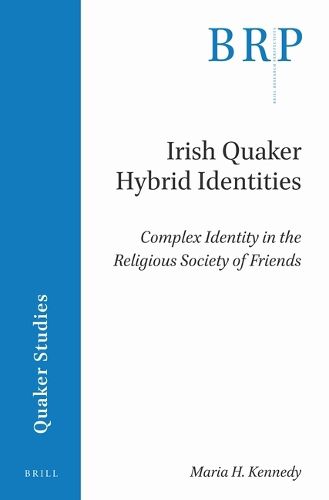Readings Newsletter
Become a Readings Member to make your shopping experience even easier.
Sign in or sign up for free!
You’re not far away from qualifying for FREE standard shipping within Australia
You’ve qualified for FREE standard shipping within Australia
The cart is loading…






Dr Kennedy’s work is a sociological study of Quakers that investigates the impact that sectarianism has had on identity construction within the Religious Society of Friends in Ireland. The research highlights individual Friends’ complex and hybrid cultural, national and theological identities - mirrored by the Society’s corporate identity. This monograph focuses specifically on examples of political and theological hybridity. These hybrid identities resulted in tensions which impact on relationships between Friends and the wider organisation. How Friends negotiate and accommodate these diverse identities is explored. It is argued that Irish Quakers prioritise ‘relational unity’ and have developed a distinctive approach to complex identity management. Kennedy asserts that in the two Irish states, ‘Quaker’ represents a meta-identity that is counter-cultural in its non-sectarianism, although this is more problematic within the organisation. Furthermore, by modelling an alternative, non-sectarian identity, Quakers in Ireland contribute to building capacity for transformation from oppositional, binary identities to more fluid and inclusive ones.
$9.00 standard shipping within Australia
FREE standard shipping within Australia for orders over $100.00
Express & International shipping calculated at checkout
Dr Kennedy’s work is a sociological study of Quakers that investigates the impact that sectarianism has had on identity construction within the Religious Society of Friends in Ireland. The research highlights individual Friends’ complex and hybrid cultural, national and theological identities - mirrored by the Society’s corporate identity. This monograph focuses specifically on examples of political and theological hybridity. These hybrid identities resulted in tensions which impact on relationships between Friends and the wider organisation. How Friends negotiate and accommodate these diverse identities is explored. It is argued that Irish Quakers prioritise ‘relational unity’ and have developed a distinctive approach to complex identity management. Kennedy asserts that in the two Irish states, ‘Quaker’ represents a meta-identity that is counter-cultural in its non-sectarianism, although this is more problematic within the organisation. Furthermore, by modelling an alternative, non-sectarian identity, Quakers in Ireland contribute to building capacity for transformation from oppositional, binary identities to more fluid and inclusive ones.